SUMMARY
This is AI generated summarization, which may have errors. For context, always refer to the full article.
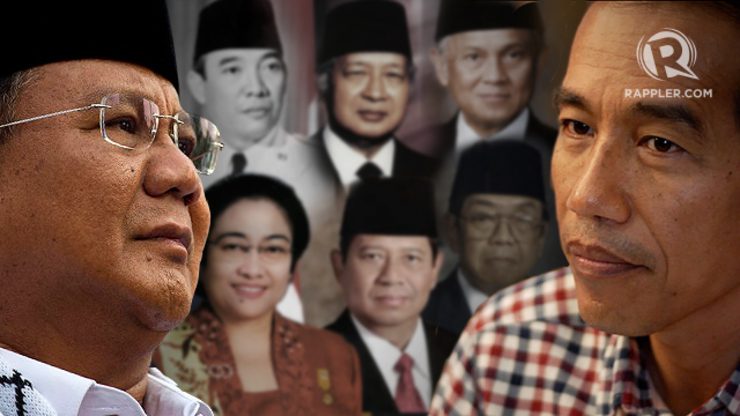
JAKARTA, Indonesia – There are days when the past and the present collide to create the future.
July 9, 2014, the day 140 million Indonesian voters chose their president for the third time in the history of the world’s 3rd largest democracy, brought to life the ghosts – and the grudges – of the past.
Indonesians compared that day to mythic epic battles, polarizing society in the showdown between former army general and businessman Prabowo Subianto and former furniture maker and Jakarta Governor Joko Widodo.
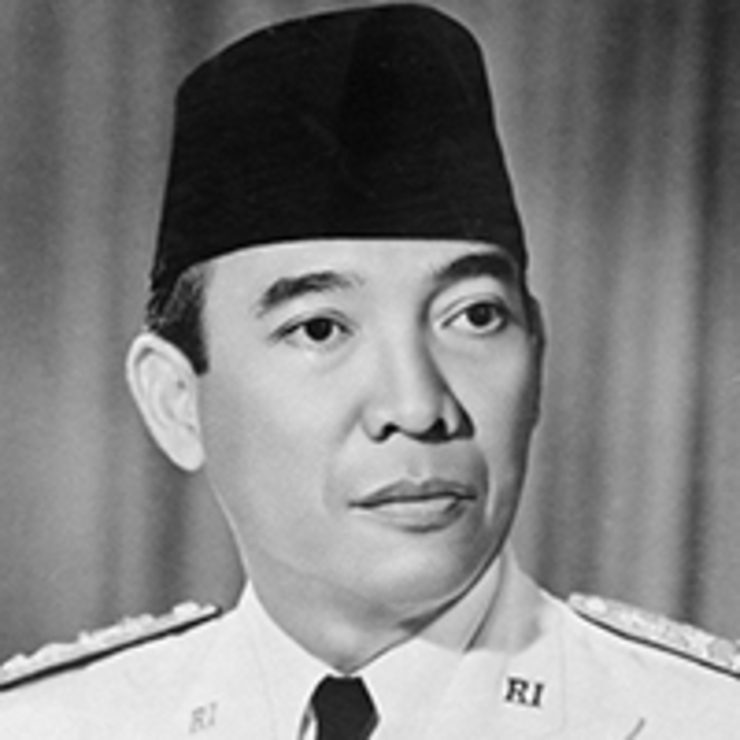
Some myths, though, are rewritten by elections. Like the myth of Pakubuwono, once the way Indonesians viewed their top leaders.
According to Javanese myths, a true leader with wahyu, meaning “divine revelation,” creates order in the universe. The royal sultans of Solo were named Pakubuwono, which literally translated means “the nail of the universe,” the lynchpin that holds reality together.
“During Suharto’s time, there was always a saying that under the banyan tree, not even grass could grow because the figure of Suharto was just so dominant and so domineering that nobody could conceive challenging Suharto and challenging the system,” explained political analyst Dewi Fortuna Anwar, an outspoken critic during Suharto’s time. She became the spokesperson of the man who succeeded Suharto, Bacharrudin Jusuf (BJ) Habibie, and now helps determine strategic plans for Indonesia as a senior adviser to Vice President Boediono.
“After the fall of Suharto, you can see that the presidency itself is not such a fearsome institution anymore,” Dewi said. “How people see power itself has changed.” (WATCH: Indonesia at a turning point)
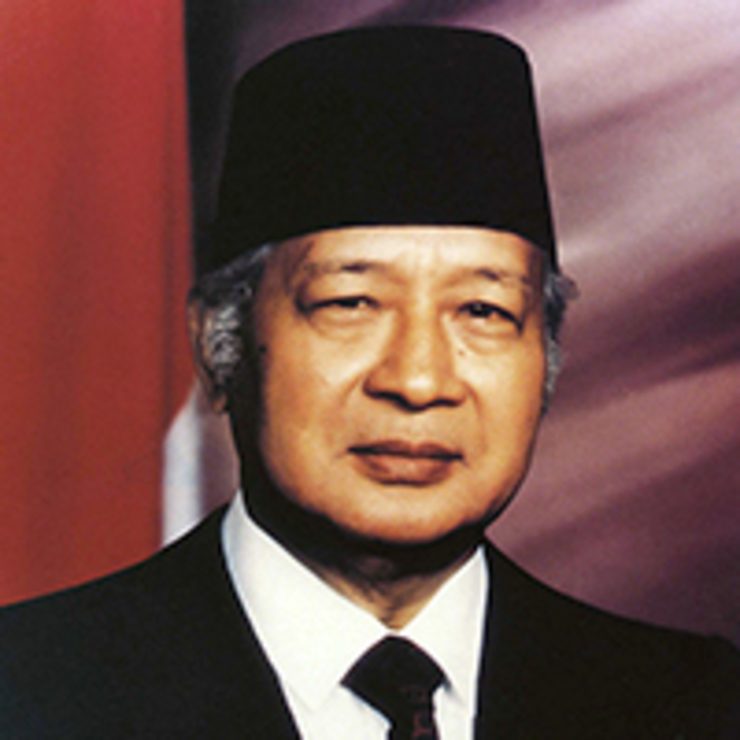
In many ways, presidential contender Prabowo Subianto brought the ghosts of founding father Sukarno and former authoritarian ruler Suharto back to life.
Sukarno led a fierce nationalist movement and fought the Dutch for independence, becoming his country’s first president from 1945 to 1967.
Prabowo’s rising star
That was when a bloody coup sparked an anti-communist purge the CIA called “one of the worst mass murders in history.” The army general widely seen as engineering events then behind the scenes was Suharto, who ousted Sukarno and became president for the next 32 years.
Prabowo, a rising star of the Indonesian military, went on to head Kopassus, its Special Forces, and then command Kostrad, its largest and most important army unit. He married Suharto’s daughter, and at one point was seen as Suharto’s likely successor.
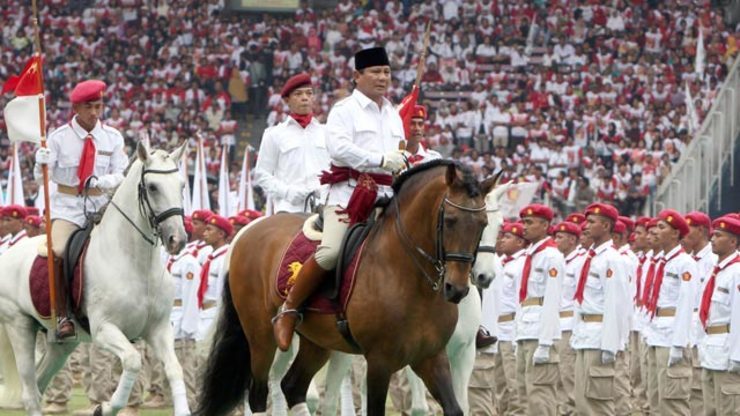
He gained significant support by promising strong leadership in a carefully calibrated campaign full of images from Indonesia’s past.
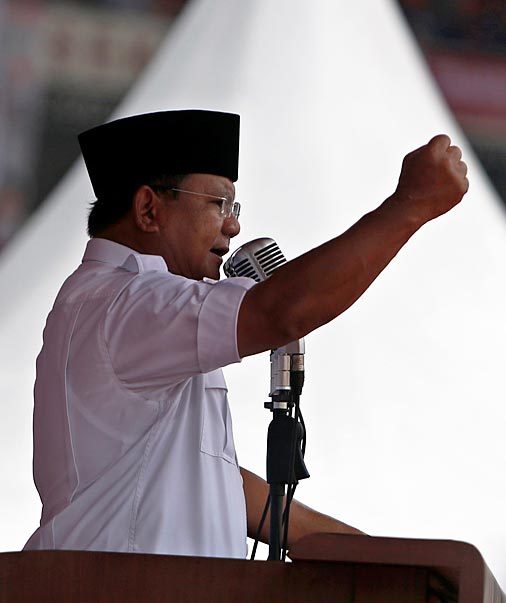
“The man he’s channeling is not his father-in-law, Suharto,” said Professor Greg Barton from Australia’s Monash University. “It’s Megawati’s father, Sukarno. He’s dressed in the same white uniform. At his campaign rally, he had the same 1950’s style microphone, and he effects a kind of Sukarno-esque style of bombastic, soaring rhetoric, bold confidence and crazy nationalism.” (WATCH: Stability vs change in Indonesia)
Sukarno’s daughter, 67-year-old Megawati Sukarnoputri, continues to play a crucial role in Indonesian politics.
Her father’s image helped catapult her to national consciousness as the main opposition leader against Suharto.
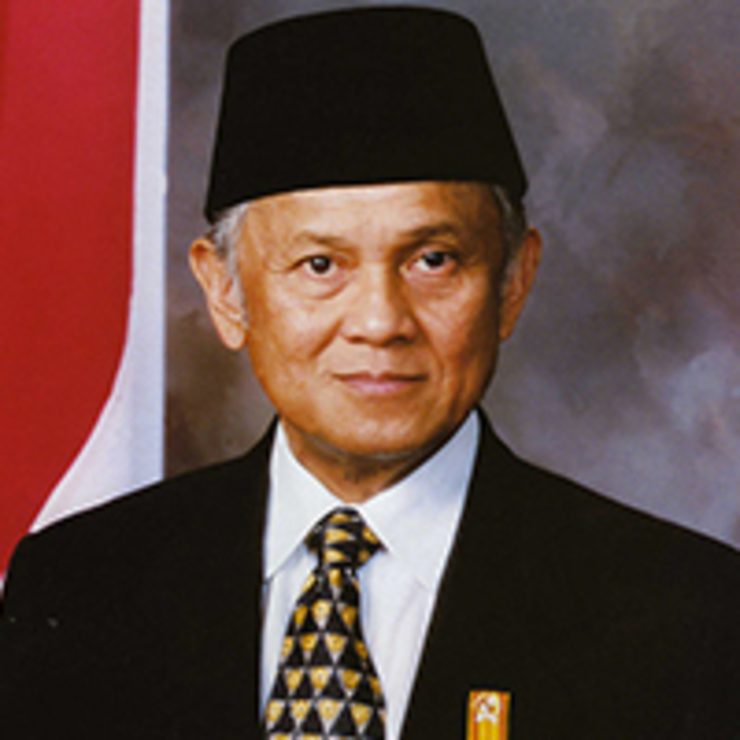
On July 27, 1996, Suharto tried to remove Megawati as leader of the smallest of 3 recognized political parties, triggering the worst riots Jakarta had seen in 20 years. At least 10,000 people rampaged down one of the main roads and set fire to buildings owned by the ethnic Chinese, a harbinger of the riots that ended Suharto’s rule 2 years later.
His vice president, BJ Habibie, became president for 16 months until a no-confidence vote of the People’s Consultative Assembly, the country’s version of an electoral college, gave the presidency to Abdurrahman Wahid or Gus Dur, a half-blind Muslim cleric who led the country’s largest Muslim group.
After losing to Gus Dur (and becoming his vice president), Megawati became Indonesia’s president on August 1, 2001, after another no-confidence vote ended Gus Dur’s term in office after less than a year.
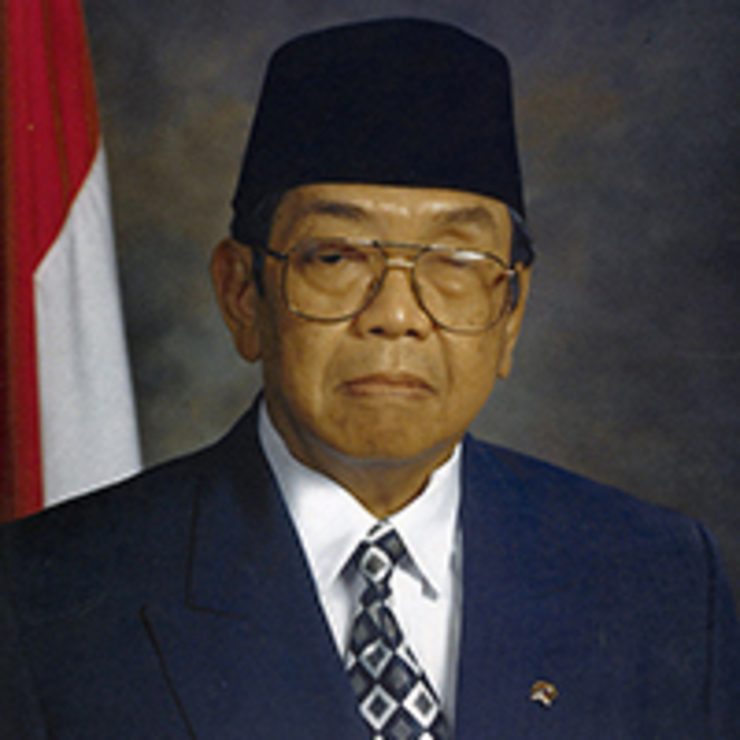
In 2004, Indonesia had its very first direct presidential elections. Megawati attempted to get her own mandate from the people, but lost to one of her ministers, army general Susilo Bambang Yudhoyono, who won re-election in 2009.
Deal with Jokowi
Today, Megawati remains the leader of PDI-P, the Indonesian Democratic Party of Struggle, which fielded Joko Widodo, known as Jokowi, as its standard bearer.
Insiders say it took the party so long to name Jokowi because Megawati was herself considering running again, a move that analysts said would have failed dismally. Instead, a deal was struck to have her daughter, Puan Maharani, run as vice-president.
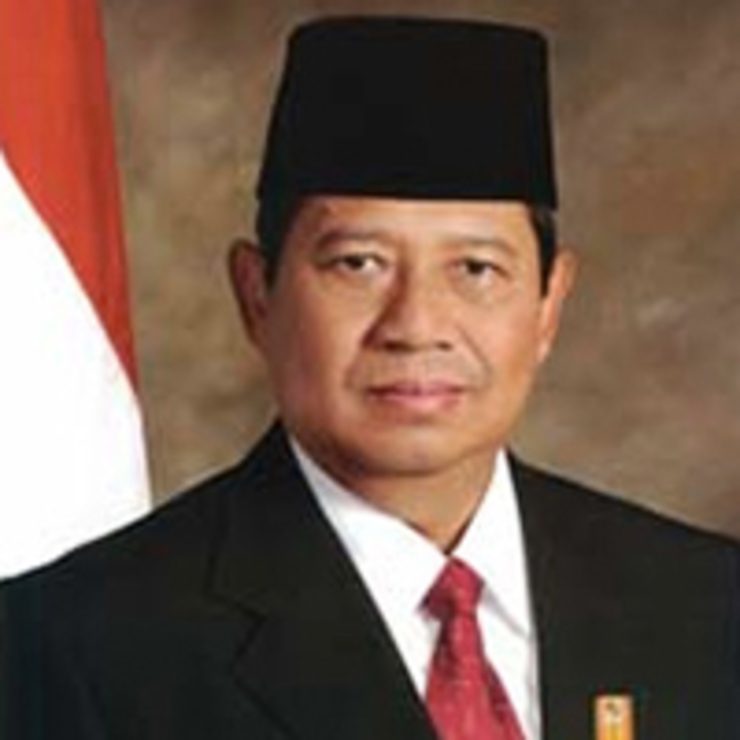
Her party’s poorer showing in April’s Parliamentary elections frustrated that plan, forcing PDI-P to form a coalition and find a running mate acceptable to its partners.
“Megawati’s been front and center, along with her daughter, Puan,” Barton told Rappler. “There’s a deep degree of ambivalence if not antipathy so that’s actually been a legacy and a liability that’s really hurt Jokowi.”
Case in point: Megawati had never forgiven her minister, Susilo Bambang Yudhoyono, for running against her in the 2004 elections. If she had, his party may have strengthened Jokowi during the campaign instead of supporting Prabowo.
“Yudhoyono wasn’t present in this campaign, but he could’ve helped the Jokowi camp if his relationship with Megawati wasn’t so sour,” said Barton. “I mean if Megawati had accepted his overtures of reconciliation, he would’ve been there backing Jokowi, and that would’ve been a game changer.”
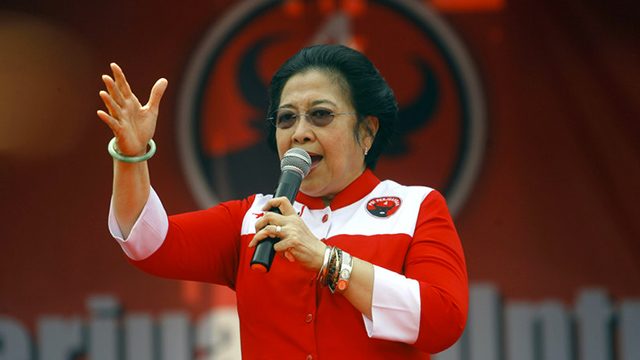
About an hour and a half after polls closed, Megawati declared Jokowi and his running mate, Jusuf Kalla, the 7th president and vice president of Indonesia.
“We take this opportunity to come together based on the quick count results that show that Jokowi-JK are the winners,” declared Megawati at her house in Menteng, Central Jakarta.
The exuberant air of victory was colored by added vindication for past losses. A senior Megawati aide reminded me, “Remember 10 years ago when we were on the other side?”
“This is the voice of the people,” Puan told me, echoing Megawati’s words in 1998, each layer adding nuance and meaning. “We celebrate our victory first.”
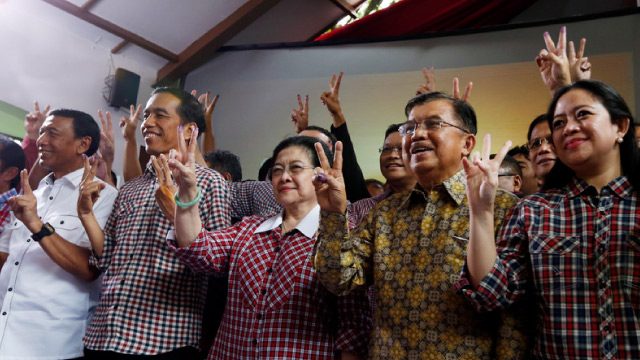
Prabowo immediately challenged that declaration, saying the real count shows he is winning. (READ: Prabowo camp: Jokowi claims risk ‘hijacking democracy’)
Gauging by respected surveys and quick counts, Jokowi seems on his way to becoming his country’s new leader on July 22. (READ: Jokowi: I won but monitor poll results)
He has no ties to Jakarta’s ruling political elite. The thread that holds him to it is Megawati.
Will she be able to control him?
“If people say I am just a puppet of Megawati, they are very wrong,” said Jokowi. “I respect Megawati, but I am not a puppet of Megawati.
A man who grew up in Java slums, he’s used sheer persistence and his folksy charm to break down endemic corruption. He has no long-time friends to protect, and that may be sending shivers through the business community who have long been in bed with the political elite.
Jokowi is no Pakubuwono, no mythic leader. In fact, his bottom-up approach to governance may, at first, slow down the way the bureaucracy works. He still has a lot to prove, including that he can move from a COO handling operations to a CEO, in charge of strategy and steering the world’s 5th largest economy in a global landscape.
For now, it seems the ghosts are gone.
This is a new Indonesia. – Rappler.com
Maria Ressa was CNN’s Jakarta bureau chief from 1995 to 2005.
Add a comment
How does this make you feel?
There are no comments yet. Add your comment to start the conversation.